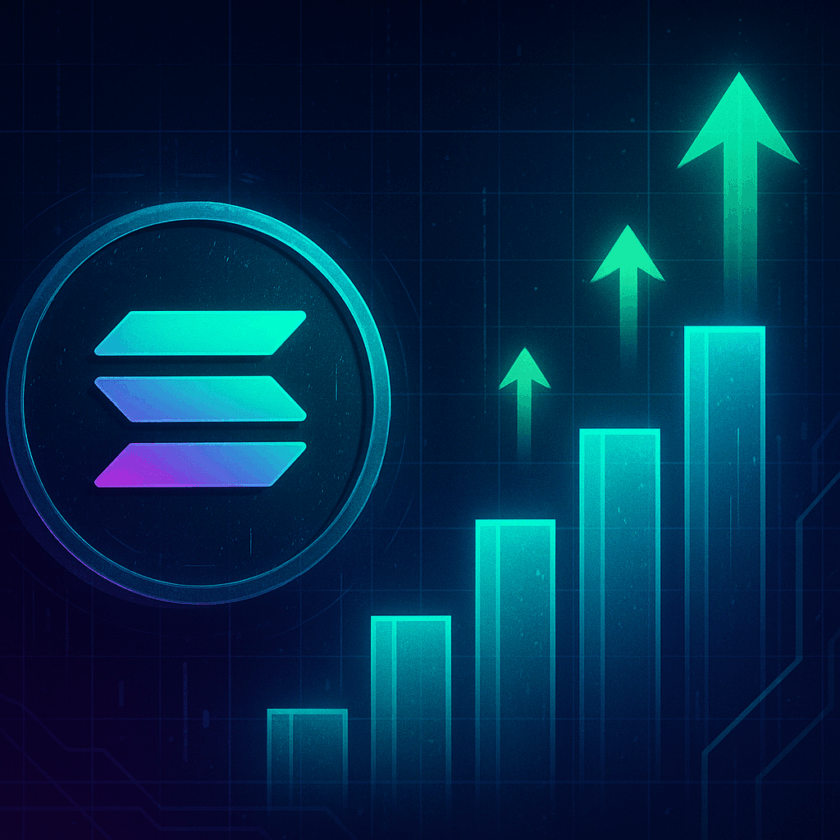Disclosure: This article does not represent investment advice. The content and materials featured on this page are for educational purposes only.
As Solana (SOL) navigates a surprising 6.5% dip, the spotlight shifts to InQubeta’s (QUBE) presale results, raising $13 million and challenging Hedera (HBAR) with its AI integration in blockchain.
Once named among the best cryptocurrencies to buy, Solana (SOL) is currently wading through choppy waters. The decentralized platform had been riding high following the success of its meme coins.
Solana’s market capitalization was on the rise when its price suddenly witnessed a downturn. The 6.5% drop wasn’t on analysts’ radar and they are now looking into how it will impact Solana’s prospects.
Amid the gloom, InQubeta’s (QUBE) has been gaining market clout with its presale success. Launched last year, the platform helps AI startups raise funds from crypto users.
With a decentralized governance structure and a deflationary token as USPs, InQubeta is a promising asset to buy now. Its presale gains have pushed its popularity and even pitted it against top names like Hedera (HBAR). Currently, its presale funding stands at $13 million.
InQubeta gives crowdfunding a crypto makeover
InQubeta’s rise is a testimony to the fact that the crypto sector is favoring the integration of blockchain with AI. The platform makes the entry of startups in the DeFi ecosystem easier with a hassle-free investment model.
The platform is among the emerging cryptos of 2024 which has a stringent screening process for startups before onboarding. The startups are required to submit investment proposals which are converted into NFTs and then sold to crypto users at an online marketplace. Each NFT corresponds to an AI project and offers its buyer a share in a startup’s equity.
These digital assets can be compared for making informed decisions and even be bought in fractions. To buy these NFTs, people would have to use InQubeta’s native cryptocurrency, the QUBE token.
Apart from NFT sales, the QUBE coin is also used for on-chain governance and staking rewards. The platform takes care of other business development requirements by connecting with a community of experienced professionals.
Within the community, startups can find veterans who can mentor them and understand the AI sector better. These professionals will also help entrepreneurs in marketing a project and networking.
The QUBE token has a stock of 1.5 billion units. The tokenomics allocates 65% of the supply for public sales and the remaining for overhead expenses, staking rewards, and marketing campaigns.
Solana-based Zeus Network raises $8 million in seed funding
Solana is a blockchain network supporting different Web 3.0 solutions like dApps and virtual machines. Its native token SOL facilitates all kinds of payments within the network.
These payments are then authenticated with the proof-of-stake protocol with the help of nodes. SOL token holders can operate as validators or node operators and earn crypto rewards for their services.
The platform was recently in the news after its Layer 2 solution Zeus Network raised $8 million in funding. The round of funding was led by Mechanism Capital and includes names like Animoca Ventures, Lemniscap, and OKX Ventures.
Zeus Network is a cross-chain communication layer that enables developers to create dApps between Bitcoin and Solana networks.
Solana’s enviable growth trajectory witnessed a blip recently after its price dropped by 6.5%.
Hedera partners with the Digital Euro Association
Considered one of the altcoins to watch out for this year, the Hedera network is a fully decentralized protocol. It allows enterprises to leverage the tokenization of real-world assets across different fields. Its native token HBAR is used for all transactional purposes.
In a recent development, Hedera’s HBAR Foundation joined hands with the Digital Euro Association (DEA). It is a think tank working in the digital payments space.
Under the partnership, the two entities will be working together in areas like stablecoins, digital payments, and central bank digital currencies (CBDCs).
Conclusion
Solana, Hedera, and InQubeta often find a mention among cryptos with robust code architecture and security frameworks. These coins encourage more people to explore the potential of cryptocurrencies and create income streams that can beat the market odds.
According to analysts, the individual achievements of these crypto projects have contributed to their success. Solana’s journey to become one of the best cryptocurrencies to buy was marked by the success of its meme coins and Layer 2 solutions like Zeus Network.
For Hedera, its partnership with the Digital Euro Association and the addition of giants like Mondelez International to its governance council are expected to bolster its market dominance.
In InQubeta’s case, analysts cite its AI-driven crowdfunding model as its biggest strength. Given how transparent fundraising is a major pain point for startups, the platform fills a crucial gap. Its surging presale gains have earned it the top spot among analysts’ best cryptocurrency ICO lists.
To learn more, visit the InQubeta presale.
Disclosure: This content is provided by a third party. crypto.news does not endorse any product mentioned on this page. Users must do their own research before taking any actions related to the company.



